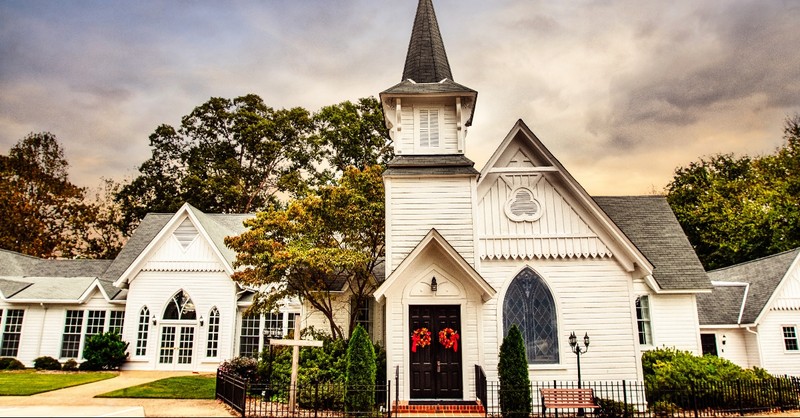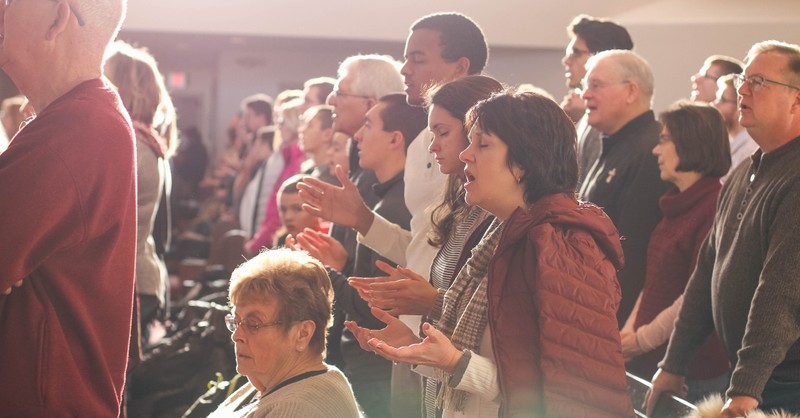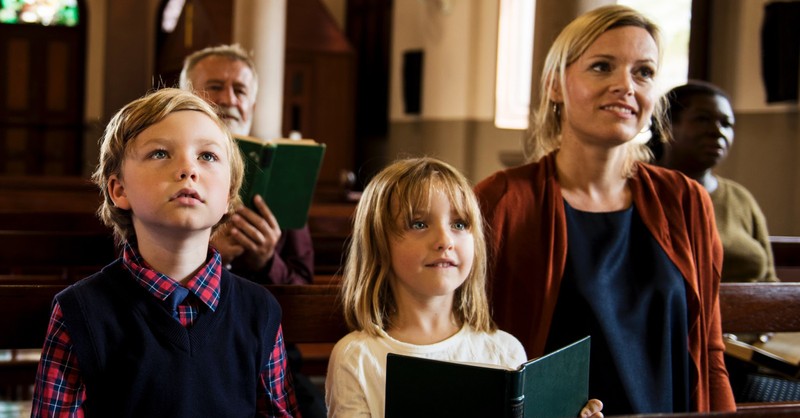
The debate about how women should lead within the church has existed since the early days of the church. This topic continues to propel debates on social media and divide denominations. This article does not promote one view over another, but rather serves to give an overview of what several of the largest denominations believe about women serving in leadership positions within the church.
Photo Credit: © Getty Images/Fizkes

Southern Baptist Convention
The Southern Baptist Convention is one of the largest denominations with over 14.5 million members and 45,000 churches. Many non-denominational churches, such as North Point Community Church in Atlanta, GA and are rooted in Baptist heritage. While the SBC does not allow women to serve as ordained pastors, women are allowed to serve in ministry positions such as children’s ministers, youth directors, women’s directors, etc.
Each church operates autonomously. Therefore, the leadership and title given to a woman depends on what the senior pastor and deacons deem appropriate. Some Southern Baptist churches have women deacons, but very few. The Baptist Faith and Message states that the office of pastor is limited to men, as qualified by God. Non-denominational churches vary in their views of women in leadership, depending on the church’s leadership. These non-denomination churches operate freely and independently of any overarching ecclesiastical structure.
Photo Credit: © Unsplash/Chuttersnap

Church of God in Christ
The Church of God in Christ is the largest an African American Pentecostal denomination in the United States. Currently, they ordain women as missionaries and chaplains. However, they do not recognize women as pastors. There is a specific office called the Church Mother who oversees the women’s department, which is an auxiliary of the denomination.
Church of Christ
The Church of Christ believes in the spiritual gifting of all believers. The denomination teaches that women are not to take positions of leadership consisting of elders and pastors within the church. Rather, they are to teach other women, show hospitality, evangelize, and serve in other aspects of ministry. The denomination feels the better question is, “how am I to use the gifts God has given me?” rather than “what should the woman’s role in the church be?”
Photo Credit: © Getty Images/Ehrlif

United Methodist Church
According to the General Commission on the Status and Role of Women of the United Methodist Church, the denomination “advocates for full participation of women in the total life of The United Methodist Church.” The Commission’s goal is to help the church recognize every person—clergy and lay, women and men, adults and children—as full and equal parts of God’s human family. Since 1956, the UMC has given full clergy rights to women, ordaining them as both elders and deacons.
National Baptist Convention
The National Baptist Convention is a denomination founded in the late 1800s. Their organizational structure is based off of a Board of Directors and auxiliaries of the Convention. There was no listing according to their website as to a public stance on women leadership within the denomination. They have a Women’s Auxiliary and a female President over the auxiliary. This department exists to organize, encourage, and equip women to advance the Gospel Message.
Photo Credit: © Getty Images/Booky Buggy

Evangelical Lutheran Church of America (ELCA)
The ELCA is a relatively new denomination, formed in 1988 when three Lutheran Churches merged. There are approximately 4.5 million members within the denomination in the United States. Based off of the teachings of Martin Luther, they value forgiveness, reconciliation, diversity, and inclusion. Women maintain leadership within all parts of the denomination’s leadership structure, serving as bishops, pastors, and deacons.
National Baptist Convention of America International
The National Baptist Convention of America is a fellowship of African American churches rooted in the tradition of the Foreign Mission Baptist Convention of the United States. Currently, there are approximately 3.5 million members within the denomination. Some of their core values include “civil liberty, social justice, and the equality of humankind as children of God.” Their ecclesiastical structure consists of an Executive Cabinet, Conference Auxiliaries, and Boards. While they have a Women’s Auxiliary that serves to meet the needs of the women within the denomination and reach women across the world, the NBCA does not ordain women as pastors.
Photo Credit: © Sparrowstock

Assemblies of God (USA)
The Assemblies of God (USA) denomination emphasizes the importance of the gifts of the Spirit and their display in use within ministries. Women and men receive the Spirit equally. Both women and men serve as missionaries, evangelists, church planters, and educators. The official position of the denomination is that they believe that Scripture does not give convincing evidence restricting the ministry of women. They see ministry as a calling rather than a profession.
Presbyterian Church (USA)
The Presbyterian Church (USA) believes that a balanced world makes a better world. Women are welcome in every aspect of ministry within the church. The denomination believes in equality of leadership roles, first ordaining women as elders in 1930 and allowing women to lead as ministers of the Word and Sacrament in 1956.
Photo Credit: © Sarah Noltner/Unsplash

Presbyterian Church of America (PCA)
The Presbyterian Church of America originally left the Presbyterian Church of the United States over the difference of opinion of the role of women in the church. Members of the PCA opposed women in church leadership, while the PCUSA welcomed them. Currently, the Presbyterian Church of America does not ordain pastors, deacons, or elders, but advocate that women serve in leadership roles that are appropriate as deemed by Scripture.
An Important Reminder:
What I learned from surveying the topic of the role of women in leadership in the church is that you cannot judge a denomination based on this one topic. While it is a deeply personal issue to many, it is one small portion of their theology. Cherry picking a church home because you agree with one topic while neglecting to see the larger mission can be dangerous to your faith and doctrine. I encourage you to dig deeper into some of these denominations and discover what they believe about salvation, the sacraments, ecclesiology, justification, sanctification, and spiritual gifts. Exploring denominations will help you better understand your own personal faith as you dive deeper into the word of God.
Photo Credit: © Getty Images/Rawpixel
Originally published Wednesday, 23 September 2020.









